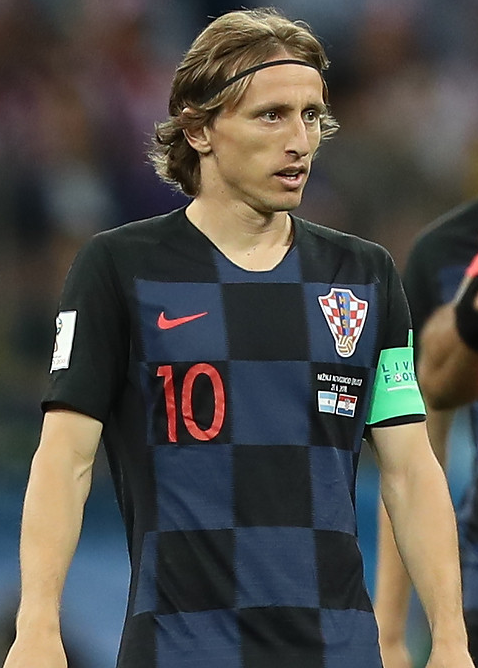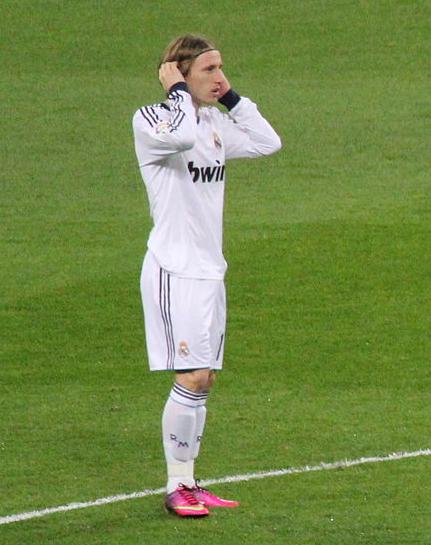









Luka Modric: The Maestro's Enduring Legacy in Football
Luka Modric, the Croatian midfielder and 2018 Ballon d'Or winner, has solidified his status as one of football's all-time greats through his skill, vision, and leadership on the pitch. As he approaches the twilight of his illustrious career, his contributions to both club and country continue to resonate across the footballing world.
The Early Years: Humble Beginnings
- Birth and Background: Born on September 9, 1985, in Zadar, Croatia, Modric faced adversity early on due to his family's displacement during the Croatian War of Independence.
- Youth Career: Modric began his football journey at a local club, NK Zadar, before moving to Dinamo Zagreb, where he honed his skills and caught the attention of scouts.
Rise to Prominence: Dinamo Zagreb and Beyond
- Dinamo Zagreb: Modric's time at Dinamo Zagreb (2003-2008) was marked by rapid development and success, winning three consecutive league titles and establishing himself as a pivotal player.
- Move to Tottenham Hotspur: In 2008, he made a high-profile move to Tottenham Hotspur in the Premier League, where he further showcased his talent and began to attract international acclaim.
The Galáctico Era: Real Madrid
- Joining Real Madrid: In 2012, Modric signed with Real Madrid for a reported fee of around €30 million, joining a star-studded lineup that included Cristiano Ronaldo and Sergio Ramos.
- Trophy Cabinet: Since joining Madrid, Modric has won numerous titles, including five UEFA Champions League trophies and multiple La Liga titles, cementing his place in the club's storied history.
Playing Style: The Engine Room
- Technical Skills: Modric is renowned for his exceptional ball control, passing accuracy, and ability to read the game. His vision allows him to dictate the tempo and flow of matches.
- Defensive Contributions: Beyond his offensive capabilities, Modric is also a tireless worker defensively, often tracking back to help his team regain possession.
International Career: Leading Croatia
- National Team Debut: Modric made his senior debut for the Croatian national team in 2006 and has since become the team's captain and a key figure.
- 2018 FIFA World Cup: His crowning achievement came during the 2018 World Cup, where he led Croatia to its first-ever final, earning the Golden Ball award for best player in the tournament.
Legacy and Impact
- Influence on Young Players: Modric's work ethic and professionalism have inspired a generation of players in Croatia and around the world.
- Cultural Icon: Beyond the pitch, Modric has become a symbol of resilience and dedication, representing the spirit of a nation that faced numerous challenges.
Challenges and Resilience
- Injuries and Criticism: Throughout his career, Modric has faced injuries and critics questioning his longevity and ability to perform at the highest level, especially as he entered his 30s.
- Defying Age: Despite these challenges, he has continued to perform consistently, demonstrating that age is merely a number in football.
Looking Ahead: The Final Chapter
- Future Plans: As Modric approaches the end of his career, there is speculation about his next steps, including potential retirement or a move to a different league.
- Influence Beyond Playing: Regardless of his decision, Modric's influence on the game will undoubtedly extend beyond his playing career, possibly transitioning into coaching or mentorship roles.
Conclusion: A Lasting Legacy
Luka Modric's journey from a war-torn childhood to becoming one of football's elite is a testament to his talent, perseverance, and dedication. As he continues to grace the pitch, fans and aspiring footballers alike will remember him not just for his accolades, but for the artistry he brought to the beautiful game. His legacy is not only etched in the trophies he has won but in the hearts of those who have witnessed his extraordinary career.
